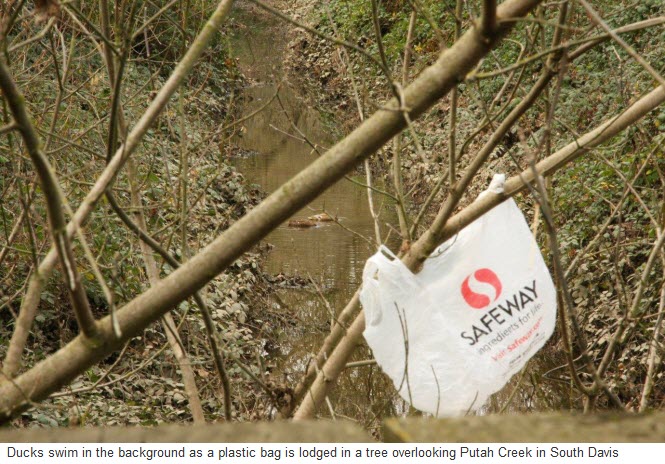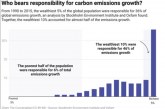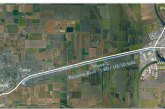 Across the state, counties and cities have passed various ordinances against the provision of single-use plastic bags. Those ordinances have also faced a series of legal challenges.
Across the state, counties and cities have passed various ordinances against the provision of single-use plastic bags. Those ordinances have also faced a series of legal challenges.
Recently the Second Appellate District affirmed the judgment of a Los Angeles County judge who upheld the law. Challenging it was a group of litigants supported by the Council on State Taxation and the California Taxpayers Association, and defended by not only Los Angeles’ County Counsel, but also by representatives from the League of California Cities and California State Association of Counties (CSAC), along with a number of environmental organizations.
The Los Angeles County ordinance prohibits retail stores from providing single-use plastic carryout bags and requires stores to charge customer a 10 cents surcharge per paper carryout bag.
Lee Schmeer and others (Petitioners) filed a combined petition for writ of mandate and complaint, challenging the ordinance contending that the ordinance violates Article XIII C of the California Constitution, as amended by Proposition 26, because the 10-cent charge is a tax and was not approved by county voters.
Writes the appellate court: “We conclude that the paper carryout bag charge is not a tax for purposes of article XIII C because the charge is payable to and retained by the retail store and is not remitted to the county. We therefore will affirm the judgment in favor of the county and other respondents.”
The ordinance, passed in November of 2010 by the Los Angeles County Board of Supervisorsm prohibits retail stores within unincorporated areas of Los Angeles County from providing plastic carryout bags to customers.
The ordinance “states that retail stores may provide, for the purpose of carrying goods away from the store, only recyclable paper carryout bags or reusable carryout bags meeting certain requirements (including plastic bags satisfying those requirements).”
It states that “retail stores must provide reusable bags to customers, either for sale or free of charge, and encourages retail stores to educate their employees to promote reusable bags and post signs encouraging customers to use reusable bags.”
The ordinance also charges the customer “10 cents for each recyclable paper carryout bag provided and must indicate on the receipt the number of recyclable paper carryout bags provided and the total amount charged for the bags.”
The ordinance exempts those customers participating in WIC or Food Stamp programs from being assessed the fee.
Lee Schmeer, Salim Bana, Jeff Wheeler, Chris Wheeler and Hilex Poly Co., LLC (Hilex) filed a combined petition for writ of mandate and complaint in October 2011 against the County of Los Angeles and three county officials.
They allege that the individual petitioners are California taxpayers who have been required to pay the paper carryout bag charge and that Hilex is a manufacturer of plastic bags prohibited by the ordinance.
According to the ruling, “Petitioners allege that the paper carryout bag charge required under the ordinance is a ‘tax’ as defined in article XIII C of the California Constitution, as amended by Proposition 26. They allege that the charge was imposed by the county in violation of section 2 of article XIII C, which prohibits any new general or special tax imposed by local government without prior approval by the voters.”
The trial court heard the merits of the petition in March 2012. The trial court concluded that the paper carryout bag charge is not a general or special tax because the money is retained by the retail stores and is not remitted to the county.
The court argued that even if the charge fell within the general definition of a tax under Proposition 26, the charge would satisfy an exception to that definition for “[a] charge imposed for a specific benefit conferred or privilege granted directly to the payor that is not provided to those not charged, and which does not exceed the reasonable costs to the local government of conferring the benefit or granting the privilege.”
Again, the county contends the paper carryout bag charge is not a tax because it is payable to and retained by the retail store and is not remitted to the county.
The appellate court agreed with this argument, citing that the term tax “refers to a compulsory payment made to the government or remitted to the government. Taxes ordinarily are imposed to raise revenue for the government.”
The court finds that there are seven exceptions within the law to the rule defining a tax as “any levy, charge, or exaction of any kind imposed by a local government…”
They note, that the first three exceptions “state that a charge imposed by a local government is not a tax if the charge does not exceed ‘the reasonable costs to the local government’ of conferring a specific benefit or privilege directly to the payor or providing a specific service or product directly to the payor, and also except from the definition of a tax a charge ‘for the reasonable regulatory costs to a local government for issuing licenses and permits’ and related activities.”
These exceptions, they argue however, do not contemplate the situation where a charge is paid to an entity or person other than a local government or where such an entity or person incurs reasonable costs.
The analysis by the Legislative Analyst on Proposition 26 stated, “Generally, the types of fees and charges that would become taxes under the measure are ones that government imposes to address health, environmental, or other societal or economic concerns.”
“We conclude that the amendment to article XIII A, section 3 does not support Petitioners ‘position,’ the court argues. “The paper carryout bag charge is payable to and retained by the retail store providing the bag, which is required to use the funds for specified purposes.”
“The charge is not remitted to the county,” they write. “Because the charge is not remitted to the county and raises no revenue for the county, we conclude that the charge is not a ‘tax’ for purposes of article XIII C of the California Constitution.”
—David M. Greenwald reporting






No big deal. It was a stupid suit. The $.10 per bag is retained by the store. It is clear that it is not a tax.
However, this [i]The ordinance exempts those customers participating in WIC or Food Stamp programs from being assessed the fee.[/i] is likely unconstitutional since it is not a tax.
The aerodynamically questionable duck/bag illustration is back again, the best recycle effort in Yolo County.
[quote]The ordinance exempts those customers participating in WIC or Food Stamp programs from being assessed the fee. is likely unconstitutional since it is not a tax. [/quote]
Just wondering. If this were to be the case, would a law suit need to be brought forward by someone actually
“injured”, for instance a store owner who could not collect the 10 cent charge from some of their customers ?
I’m surprised the bag ban is OK since I just heard the NY big soda ban got shot down by the courts yesterday.
I’ve always thought the best way to deal with litter would be to make anyone caught littering pick up trash on weekend for a month while wearing a bright vest that said “ask me why I’m picking up litter this weekend”…
[quote]would be to make anyone caught littering pick up trash on weekend for a month while wearing a bright vest that said “ask me why I’m picking up litter this weekend”…[/quote]
first of all – the effectiveness of a punishment is related not just to the punishment itself but also the likelihood of being caught. since most litter occurs when detection is unlikely, the effectiveness of the punishment is about as effective as the several hundred dollar fine – not at all.
second, you are treating this as a litter issue when that’s simply one component.